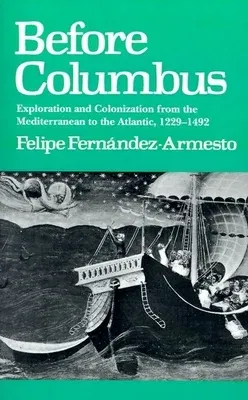Felipe Fernandez-Armesto
(Author)Before Columbus: Exploration and Colonisation from the Mediterranean to the Atlantic, 1229-1492Paperback, 1 June 1987

Qty
1
Turbo
Ships in 2 - 3 days
In Stock
Free Delivery
Cash on Delivery
15 Days
Free Returns
Secure Checkout

Part of Series
Middle Ages
Print Length
294 pages
Language
English
Publisher
University of Pennsylvania Press
Date Published
1 Jun 1987
ISBN-10
0812214129
ISBN-13
9780812214123
Description
Product Details
Author:
Book Format:
Paperback
Country of Origin:
US
Date Published:
1 June 1987
Dimensions:
21.08 x
13.72 x
2.03 cm
Genre:
Medieval (500-1453) Studies
ISBN-10:
0812214129
ISBN-13:
9780812214123
Language:
English
Location:
Philadelphia
Pages:
294
Publisher:
Series:
Weight:
362.87 gm